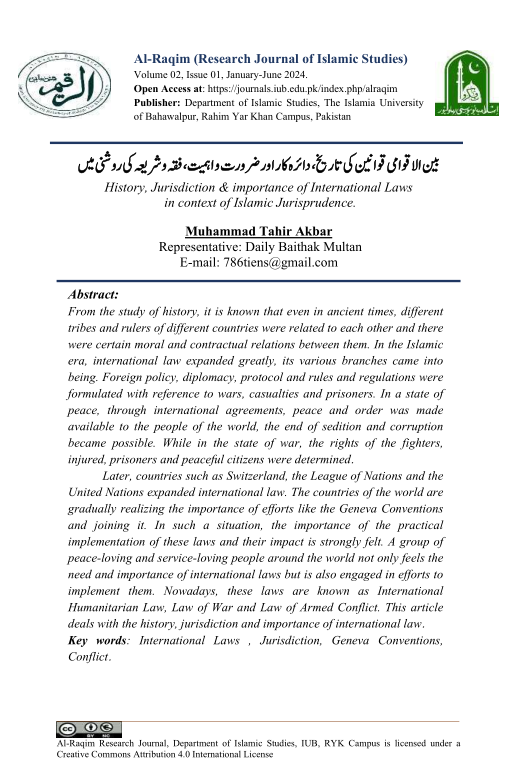بین الاقوامی قوانین کی تاریخ، دائرہ کار اور ضرورت و اہمیت، فقہ و شریعہ کی روشنی میں
History, Jurisdiction & importance of International Laws in context of Islamic Jurisprudence.
Keywords:
International Laws , Jurisdiction, Geneva Conventions, ConflictAbstract
From the study of history, it is known that even in ancient times, different tribes and rulers of different countries were related to each other and there were certain moral and contractual relations between them. In the Islamic era, international law expanded greatly, its various branches came into being. Foreign policy, diplomacy, protocol and rules and regulations were formulated with reference to wars, casualties and prisoners. In a state of peace, through international agreements, peace and order was made available to the people of the world, the end of sedition and corruption became possible. While in the state of war, the rights of the fighters, injured, prisoners and peaceful citizens were determined.
Later, countries such as Switzerland, the League of Nations and the United Nations expanded international law. The countries of the world are gradually realizing the importance of efforts like the Geneva Conventions and joining it. In such a situation, the importance of the practical implementation of these laws and their impact is strongly felt. A group of peace-loving and service-loving people around the world not only feels the need and importance of international laws but is also engaged in efforts to implement them. Nowadays, these laws are known as International Humanitarian Law, Law of War and Law of Armed Conflict. This article deals with the history, jurisdiction and importance of international law.

Downloads
Published
Issue
Section
License
Copyright (c) 2024 Muhammad Tahir Akbar

This work is licensed under a Creative Commons Attribution-NonCommercial 4.0 International License.




